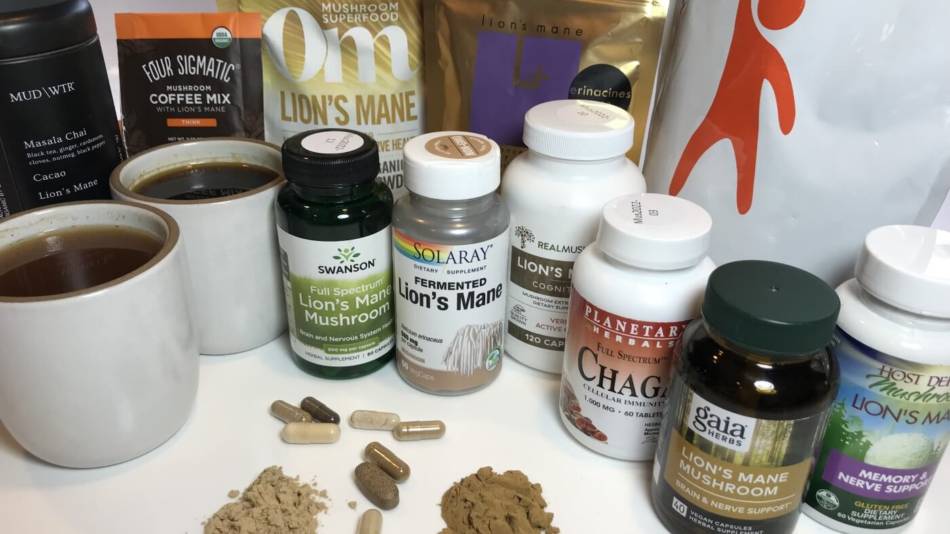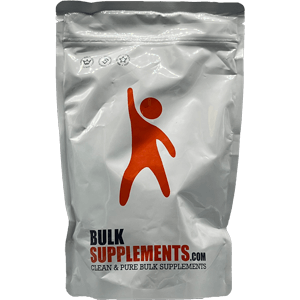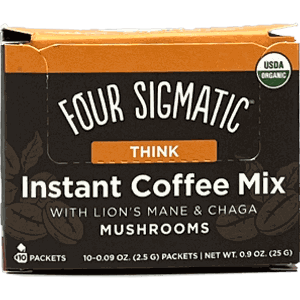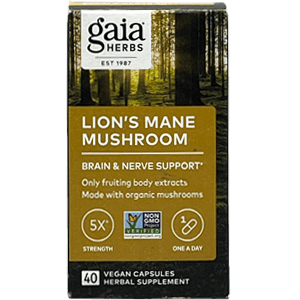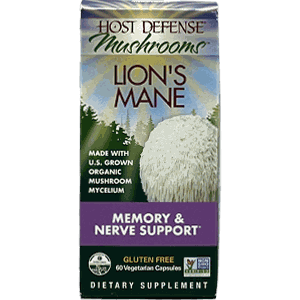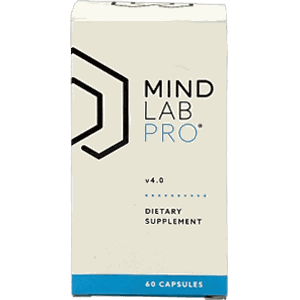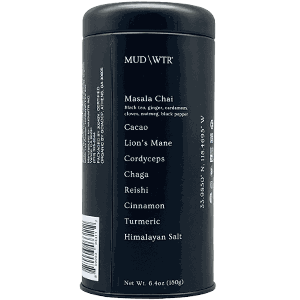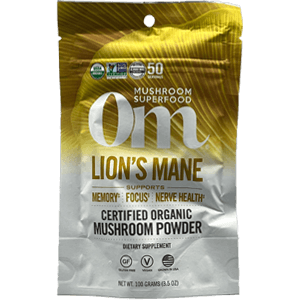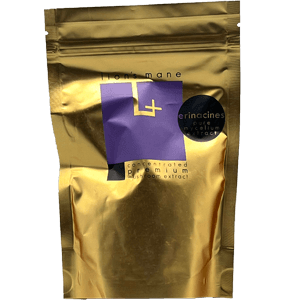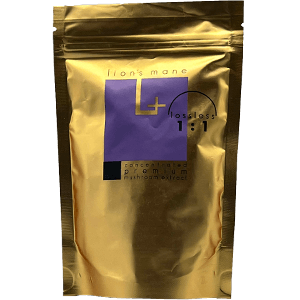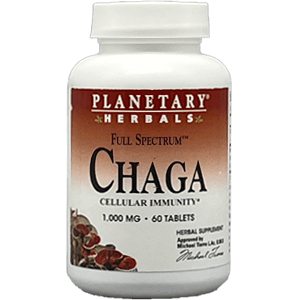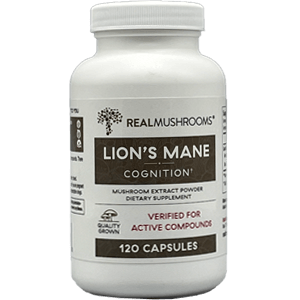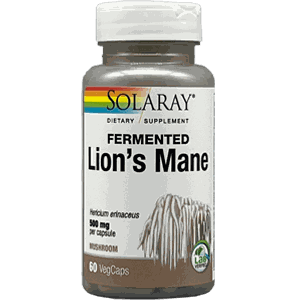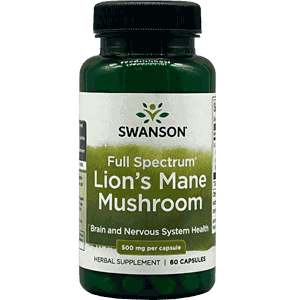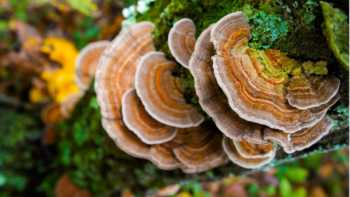Summary
-
Do lion's mane and chaga have health benefits?
Some research has shown a benefit with lion's mane on certain measures of memory and cognitive function, and possibly depression and anxiety, but results have been inconsistent, and most improvements have been modest, at best. In addition, although laboratory studies suggest that lion's mane may have benefits in nerve injury and gut health, there do not appear to be any clinical studies supporting these uses. (See What It Does for more details.)
There is even less evidence supporting the use of chaga. Although laboratory and animal studies suggest that chaga mycelium may have immune stimulating effects and, in contrast, chaga fruiting body may have immune suppressing effects, there do not appear to be any clinical studies investigating these benefits in people. (See What It Does for more details.)
-
What is lion's mane and chaga?
Like other types of fungus, lion's mane includes a fruiting body and mycelium. The fruiting body is the portion of the fungus that appears above ground and many people think of as being the "mushroom," while the mycelium is what many people think of as being the "roots." Test tube studies have shown that chemicals in lion's mane called "hericenones" and "erinacines" can promote the production of nerve growth factor in cells of the nervous system. (See What It Is for more details.)
Unlike mushroom-forming fungi like lion's mane, chaga is a fungus that grows as a parasite on trees causing a dark, charcoal-like, rough mass on the surface. This mycelial material (which may incorporate some wood from the tree) is what is mainly used in chaga teas and supplements. Only when the tree dies does chaga form a fruiting body, under the tree bark. Chaga fruiting body is used in some supplements.
-
What quality concerns exist with lion's mane and chaga supplements?
The FDA has sent warning letters to some manufacturers of lion's mane supplements for not following good manufacturing practices (see Quality Concerns). ConsumerLab has also found that many products on the market are misleadingly labeled as "mushroom" although made with mycelium.
To review and compare the quality of lion's mane and chaga products, ConsumerLab purchased products as a consumer and tested them for beta-glucan, alpha-glucan, and the heavy metals lead, arsenic, cadmium, and mercury. Tablets and caplets were tested to determine if they would properly release their ingredients. (See How Products Were Evaluated and What CL Found).
-
Which lion's mane and chaga supplements are best?
Based on ConsumerLab's review and testing, it identified one lion's mushroom supplement that passed all tests and was reasonably priced, as well as two chaga supplements. (See Top Picks.)
-
What are the side effects of lion's mane and chaga?
Use of lion's mane may cause abdominal discomfort, nausea, and allergic reactions in some people. It carries a slight risk of causing bleeding and it should be avoided in people with a history of the autoimmune condition known as HMGCR IMNM. Chaga is naturally high in oxalic acid, which can contribution to kidney stone formation and cause kidney injury if taken in high doses, long-term. People taking blood sugar lowering medication or blood thinning drugs should consult with a physician before using chaga. (See Concerns and Cautions for more details.)
Also see ConsumerLab's tests of
reishi (mushroom and mycelium) supplements.
+— 31 sources
In addition the results of its expert testing, ConsumerLab uses only high-quality, evidence based, information sources. These sources include peer-reviewed studies and information from agencies such as the FDA and USDA, and the National Academy of Medicine. On evolving topics, studies from pre-print journals may be sourced. All of our content is reviewed by medical doctors and doctoral-level experts in pharmacology, toxicology, and chemistry. We continually update and medically review our information to keep our content trustworthy, accurate, and reliable. The following sources are referenced in this article:
- Lai, Int J Med Mushrooms 2013
- He, Int J Biol Macromol 2017
- Lee, Mycobiology 2008
- McCleary, J AOAC Int 2016
- Glamoclija, J Ethnopharmacol 2015
- Saitsu, Biomed Res 2019
- Grozier, Int J Exerc Sci 2022
- La Monica, Nutrients 2023
- Surendran, Front Nutr 2025
- Mori, Phytother Res 2009
- Li, Front Aging Neurosci 2020
- Chen, Neuropsychiatr Dis Treat 2015
- Nagano, Biomed Res 2010
- Vigna, Evid Based Complement Alternat Med 2019
- Liu, J Ethnopharmacol 2016
- Wang, Int J Med Mushrooms 2015
- Therkelsen, PLoS One 2016
- Wong, Food Sci Technol 2015
- Kim, Mycobiology 2005
- Mishra, J Ethnopharmacol 2012
- Windsor, Int J Mol Sci 2025
- Nakatsugawa, Intern Med 2003
- Maes, Contact Dermatitis 1999
- Poniedzialek, Nutrients 2019
- Vu-Ticar, Hospitalist, 2022
- Glamoclijam, J Ethnopharmacol 2015
- Kikuchi, Clin Nephrol 2014
- Ohyun, Medicine 2022
- Lee, J Korean Med Sci 2020
- Ying, Phytochemistry 2014
- Hyun, Peptides 2006
You must
be a member to get the full test results, along with ConsumerLab's recommendations. You'll get results for 12 lion's mane and/or chaga supplements, including tablets, capsules, powders, and mushroom "coffee," selected for testing by ConsumerLab.
In this comprehensive review, you'll discover:

 Which lion's mane and chaga supplements failed testing, which passed, and which are CL's Top Picks
Which lion's mane and chaga supplements failed testing, which passed, and which are CL's Top Picks How lion's mane and chaga supplements compare on amounts of marker compounds beta-glucan and alpha-glucan and potential contamination with heavy metals such as lead, cadmium and arsenic as well as quality and price
How lion's mane and chaga supplements compare on amounts of marker compounds beta-glucan and alpha-glucan and potential contamination with heavy metals such as lead, cadmium and arsenic as well as quality and price
 The clinical evidence for and against lion's mane and chaga supplements for boosting memory and cognitive function, enhancing the immune system, improving mood, supporting gut health, and other promoted health benefits
The clinical evidence for and against lion's mane and chaga supplements for boosting memory and cognitive function, enhancing the immune system, improving mood, supporting gut health, and other promoted health benefits Dosage and what to look for on lion's mane and chaga labels, including differences between true mushroom (fruiting body) and mycelium
Dosage and what to look for on lion's mane and chaga labels, including differences between true mushroom (fruiting body) and mycelium Safety concerns and cautions with lion's mane and chaga supplements, including potential allergic reactions, gastrointestinal side effects such as nausea, risk of kidney stones and kidney injury, and potential drug interactions
Safety concerns and cautions with lion's mane and chaga supplements, including potential allergic reactions, gastrointestinal side effects such as nausea, risk of kidney stones and kidney injury, and potential drug interactions
As a ConsumerLab.com member, you may print a copy of this report for your personal use.
You can access a special print version by clicking the "Print" icon in the upper right corner of this report.
You can then use your web browser's print functions to print the whole report or just selected pages.
You may also email or post a link to this report using the web address above.
Non-members using the link will see a free summary and can join to view the full report.
Other means of copying or distributing this report, in part or full, are not permitted.
If you are sight-impaired and your computer is having trouble converting the text in this report to speech,
contact us for assistance at Membership@ConsumerLab.com or by
phone at 914-722-9149.

